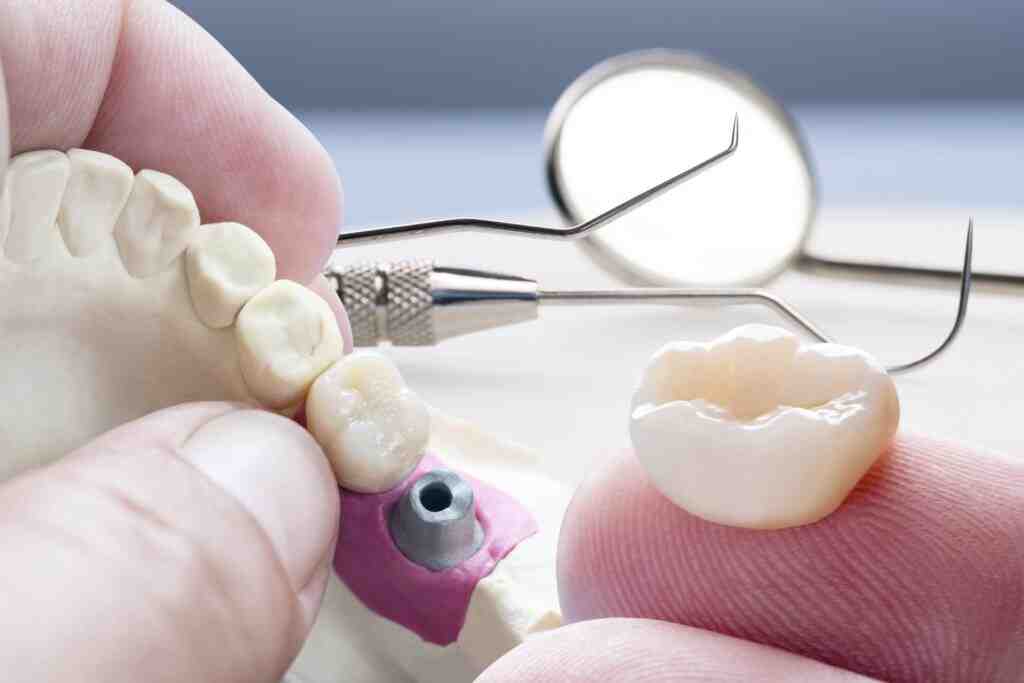Dental implants are a reliable, long-term solution for missing teeth. However, some patients may experience pain or discomfort when chewing, even years after the implant surgery. If you’re wondering, “Why does my dental implant hurt when I chew?” it’s essential to understand the potential causes and seek professional help to protect your oral health.
Common Causes of Dental Implant Pain When Chewing
- Infection (Peri-Implantitis) One of the most common reasons for dental implant pain is peri-implantitis, an infection of the gum and bone surrounding the implant. Bacteria can build up due to poor oral hygiene, leading to inflammation, bleeding, and pain when chewing .
- Loose or Misaligned Implant If your dental implant is not correctly positioned or has failed to fuse with the jawbone (osseointegrate), it may feel loose or cause pain when biting down. This can be due to incorrect placement, insufficient bone density, or other factors .
- Nerve Damage In rare cases, a dental implant may put pressure on or damage a nerve in the jawbone, resulting in pain, tingling, or numbness. If this occurs, the implant may need to be removed or repositioned .
- Ill-Fitting Crown The crown attached to your dental implant should fit seamlessly and align with your bite. An ill-fitting or misaligned crown can cause uneven pressure and pain when chewing .
Solutions for Dental Implant Pain
- Professional Evaluation If you experience persistent pain when chewing with your dental implant, schedule an appointment with your dentist or oral surgeon. They will assess the implant’s stability, check for signs of infection, and determine the underlying cause of your discomfort .
- Antibiotics for Infection If peri-implantitis is detected early, your dentist may prescribe antibiotics to eliminate the infection and prevent further damage to the bone and gum tissue surrounding the implant .
- Implant Restoration or Replacement In cases of implant misalignment or failure, your dentist may need to perform restorative procedures or replace the implant entirely. This process may involve bone grafting to ensure a stable foundation for the new implant .
- Adjusting or Replacing the Crown If an ill-fitting crown is causing your pain, your dentist can adjust or replace it to ensure a proper fit and alignment with your bite, alleviating discomfort when chewing .
Preventing Dental Implant Complications
To minimize the risk of dental implant pain and complications:
- Maintain excellent oral hygiene, brushing twice daily and flossing regularly
- Attend routine dental check-ups and cleanings every six months
- Avoid smoking or using tobacco products, which can hinder healing and increase the risk of implant failure
- Address teeth grinding (bruxism) with a night guard or other treatments, as excessive pressure can damage the implant
If you experience dental implant pain when chewing, don’t ignore it. Seek professional care from a skilled dentist or oral surgeon to diagnose the issue and find the appropriate solution. With prompt treatment and proper care, you can restore your comfort and protect the longevity of your dental implant.
Experiencing implant pain? Schedule an appointment with our expert dentists for diagnosis and relief.
